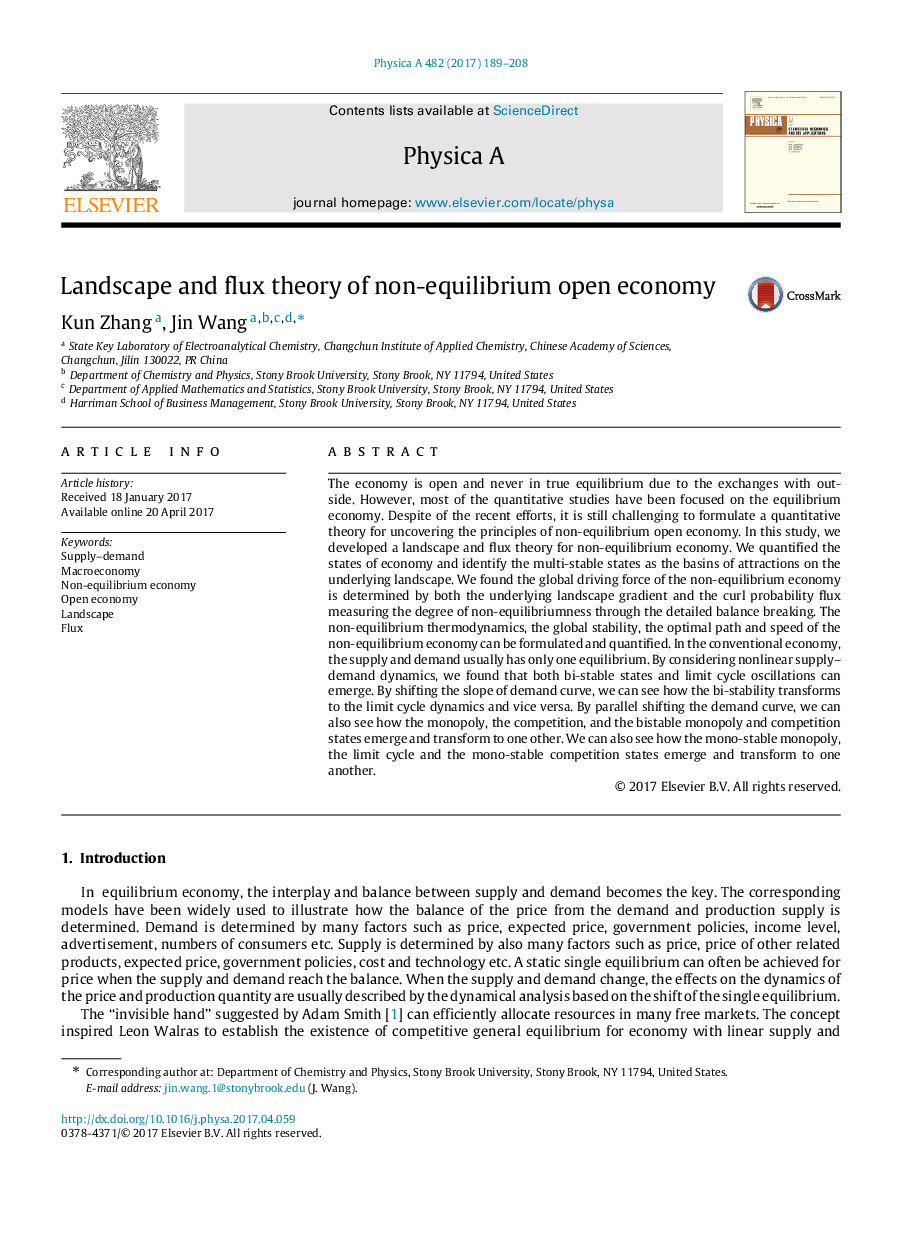| کد مقاله | کد نشریه | سال انتشار | مقاله انگلیسی | نسخه تمام متن |
|---|---|---|---|---|
| 5102841 | 1480091 | 2017 | 20 صفحه PDF | دانلود رایگان |
عنوان انگلیسی مقاله ISI
Landscape and flux theory of non-equilibrium open economy
ترجمه فارسی عنوان
نظریه چشم انداز و شتاب اقتصاد آزاد غیر تعادل
دانلود مقاله + سفارش ترجمه
دانلود مقاله ISI انگلیسی
رایگان برای ایرانیان
کلمات کلیدی
موضوعات مرتبط
مهندسی و علوم پایه
ریاضیات
فیزیک ریاضی
چکیده انگلیسی
The economy is open and never in true equilibrium due to the exchanges with outside. However, most of the quantitative studies have been focused on the equilibrium economy. Despite of the recent efforts, it is still challenging to formulate a quantitative theory for uncovering the principles of non-equilibrium open economy. In this study, we developed a landscape and flux theory for non-equilibrium economy. We quantified the states of economy and identify the multi-stable states as the basins of attractions on the underlying landscape. We found the global driving force of the non-equilibrium economy is determined by both the underlying landscape gradient and the curl probability flux measuring the degree of non-equilibriumness through the detailed balance breaking. The non-equilibrium thermodynamics, the global stability, the optimal path and speed of the non-equilibrium economy can be formulated and quantified. In the conventional economy, the supply and demand usually has only one equilibrium. By considering nonlinear supply-demand dynamics, we found that both bi-stable states and limit cycle oscillations can emerge. By shifting the slope of demand curve, we can see how the bi-stability transforms to the limit cycle dynamics and vice versa. By parallel shifting the demand curve, we can also see how the monopoly, the competition, and the bistable monopoly and competition states emerge and transform to one other. We can also see how the mono-stable monopoly, the limit cycle and the mono-stable competition states emerge and transform to one another.
ناشر
Database: Elsevier - ScienceDirect (ساینس دایرکت)
Journal: Physica A: Statistical Mechanics and its Applications - Volume 482, 15 September 2017, Pages 189-208
Journal: Physica A: Statistical Mechanics and its Applications - Volume 482, 15 September 2017, Pages 189-208
نویسندگان
Kun Zhang, Jin Wang,
